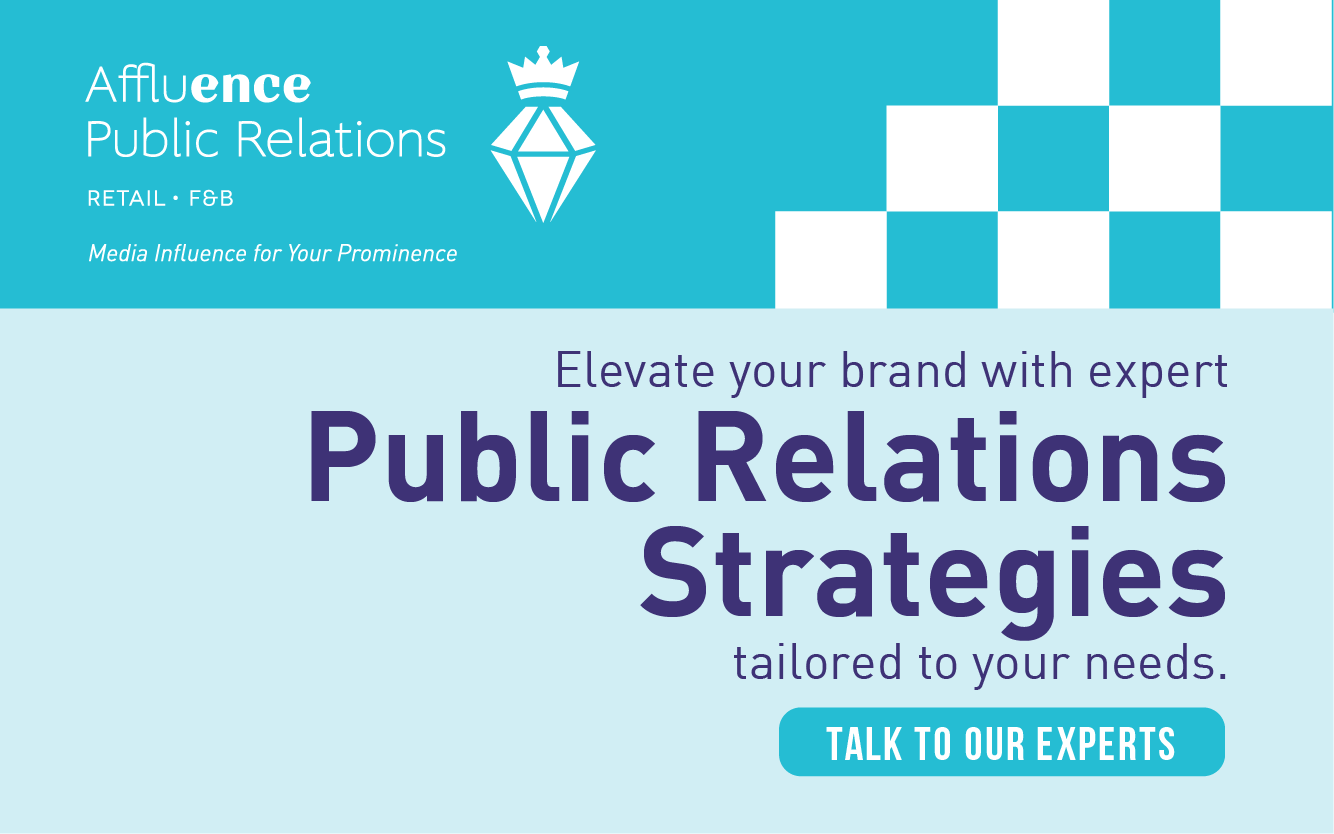In the fast-paced world of consumerism, where glossy advertisements and flashy promotions dominate the landscape, a quiet revolution is quietly taking place. Used merchandise stores, once relegated to the fringes of retail, are emerging as ethical brand treasure chests, with an unlikely weapon in our arsenal: PR campaigns.
Yes, you read that right. While big-name brands spend fortunes on marketing, we, the unassuming vendors of second-hand goods, are using strategic communication to reshape our image and capture the hearts and minds of consumers.
But how does one build an ethical brand, steeped in history and community goodwill, through PR campaigns for used merchandise stores? It’s a mysterious quest that involves weaving a narrative that transcends monetary transactions, while embracing the eclecticism and sustainability these stores represent.
Table of Contents
The untapped potential of ethical partnerships
Working with a social media agency can boost the promotion of a store’s ethical values. Strategic partnerships can help craft a story about a store’s dedication to sustainability, responsible consumption, and community involvement.
However, effectively navigating the ethical landscape requires a careful approach. PR campaigns should encompass the authenticity of products, fair trade practices, and diversity and inclusivity.
Social media platforms offer a wider reach and engagement with a larger audience, which can help promote conscious consumerism. Aligning values with branding strategy contributes to a sustainable future for second-hand stores.
Unveiling the secrets of successful PR campaigns
Used merchandise stores can effectively connect with their target audience by sharing the origins and unique stories behind their products. They should prioritize transparent and responsible sourcing practices to minimize environmental impact and ensure fair trade sources. This approach not only appeals to conscious consumers but also builds trust and loyalty. To unlock success, PR campaigns should focus on highlighting the positive impact of these stores on the environment and society. Seeking collaborations with influencers and thought leaders passionate about sustainability and conscious consumerism can help spread these messages through various media channels like social media platforms and community events, attracting like-minded customers. Ultimately, creating ethical brand treasure chests is an ongoing process that requires constant innovation, adaptability, and a genuine commitment to making a positive difference.
Navigating the ethical minefield of used merchandise stores
Creative storytelling and strategic messaging are key in highlighting the unique value propositions of these stores. Building an emotional connection with the audience is crucial to conveying the store’s commitment to ethical practices. Leveraging social media platforms allows for real-time interactions and targeted messaging, expanding the stores’ reach and creating a viral impact.
Partnering with a social media agency that understands ethical marketing can help used merchandise stores navigate PR campaigns. They can effectively communicate their ethical initiatives and gain the support of conscious consumers.
Ethical PR campaigns for used merchandise stores should not only advertise products, but also promote sustainable consumerism. This involves emphasizing the importance of waste reduction, item reuse, and supporting a circular economy. Through educational initiatives and community engagement, these campaigns empower individuals to make conscious choices and contribute to a sustainable future.
Aligning PR campaigns with the store’s core values and highlighting the positive impacts of consumer choices on the environment and society positions used merchandise stores as ethical leaders. This inspires positive change and encourages consumers to make more sustainable choices.
The power of social media in amplifying ethical messaging
Used merchandise stores can use social media to spread their ethical message and connect with their target audience. They can create interesting content to show the value and uniqueness of their products, attracting conscious consumers who care about sustainability and responsible consumption. By using interactive features on social media, stores can directly communicate with their audience, gather feedback, and show transparency in their operations.
Stores need to use social media ethically to maintain trust with consumers. They should accurately represent their products and practices and avoid manipulating or misleading advertisements. It’s important for stores to monitor and respond to online conversations and feedback in a timely and sincere manner.
By effectively using social media, used merchandise stores can establish themselves as ethical leaders in the retail industry and inspire others to make sustainable consumer choices.
Building a sustainable future through conscious consumerism
Used merchandise stores promote conscious consumerism by offering a sustainable alternative to fast fashion and disposable products. These stores curate unique, high-quality items that allow consumers to express their individuality while reducing waste and supporting ethical practices.
Through PR campaigns, used merchandise stores can educate consumers about the benefits of conscious consumerism. Messaging can highlight the positive environmental effects of buying second-hand, such as reducing carbon emissions and diverting items from landfills. Additionally, campaigns can emphasize the social impact of supporting these stores, such as contributing to local economies and supporting charitable initiatives. By encouraging consumers to make mindful choices, used merchandise stores empower individuals to be part of the solution in creating a more sustainable and equitable future.
AffluencePR: Pioneering Ethical Communication for the Thrift and Sustainability Movement
In the world of consumerism, the significance of ethical considerations often gets lost amidst the allure of shiny new products. Used merchandise stores, however, offer a glimpse into a more sustainable and conscientious way of consuming.
As these stores gain popularity, the need for effective PR campaigns becomes apparent. But how does one navigate the treacherous waters of ethical communication? This is where AffluencePR, the enigmatic Singapore-based agency, steps in with their unparalleled expertise.
They understand that promoting thrift and sustainability requires a delicate balance between capturing attention and staying true to the values of the stores they represent. Their integrated approach seamlessly combines branding, marketing positioning, and public relations, while their digital and social media campaign management ensures a wide reach.
With meticulous research guiding their every move, AffluencePR proves that ethical communication can be enigmatic and alluring.
Frequently Asked Questions
Used merchandise stores are stores that sell second-hand or pre-owned items, such as clothing, furniture, electronics, and books, at a discounted price.
An ethical brand is a brand that focuses on making socially responsible and sustainable choices in their business practices, such as using ethical sourcing, fair trade, and reducing their environmental impact.
PR campaigns help used merchandise stores build an ethical brand by raising awareness about their sustainable practices, promoting their commitment to recycling and upcycling, increasing customer trust, and positioning them as a socially responsible choice.
Building an ethical brand is important for used merchandise stores as it helps differentiate them from other competitors, attracts socially conscious consumers, and strengthens their reputation as a sustainable and responsible business.
Used merchandise stores can use PR campaigns such as media features, social media campaigns, collaborations with influencers or sustainability advocates, promoting their donation programs or initiatives, and sharing success stories of their environmental impact.
A PR campaign can help used merchandise stores increase sales and customer loyalty by creating a positive brand image, generating media coverage, attracting new customers, and fostering emotional connections with existing customers who value ethical and sustainable choices.
Conclusion
In an ever-evolving world of consumption and recycled trends, it becomes essential for used merchandise stores to navigate the ethical implications of their PR campaigns. Partnering with a social media agency, however, introduces an exciting and enigmatic array of considerations that defy convention.
It is amidst this conundrum that one must ask: are these collaborations a means to enhance the perception of sustainability, or merely a superficial attempt to paint a rosy picture? The layers of intrigue and the potential for deception simmer beneath the surface, as we delve into a realm where perception trumps reality and the pursuit of profit dances with the shadows of ethics. The lures of viral fame and the sly artistry of a well-crafted hashtag may mesmerize the public eye, but can we be certain of the provenance and authenticity behind the curated images flooding our screens? As the boundaries blur and the line between genuine social responsibility and orchestrated marketing ploys becomes hazier, it is up to us, the discerning consumers, to scrutinize beyond the surface.
Will we stand as vigilant defenders of honesty, demanding transparency in the narratives spun by these campaigns? Or will we succumb to the allure of the enigma, indulging in a society that embraces paradoxical ethics and the enthralling dance of light and shadows? The answer lies shrouded in the mist, purposefully opaque like the veiled intentions that circle this intricate web of public relations. As we embark on this journey of introspection, we must remember to be both critical thinkers and curious consciousness-seekers—alike observers who refuse to be swayed by ephemeral trends, and instead, strive for a world where ethical considerations are not mere afterthoughts but the fundamental pillars on which society pivots.







